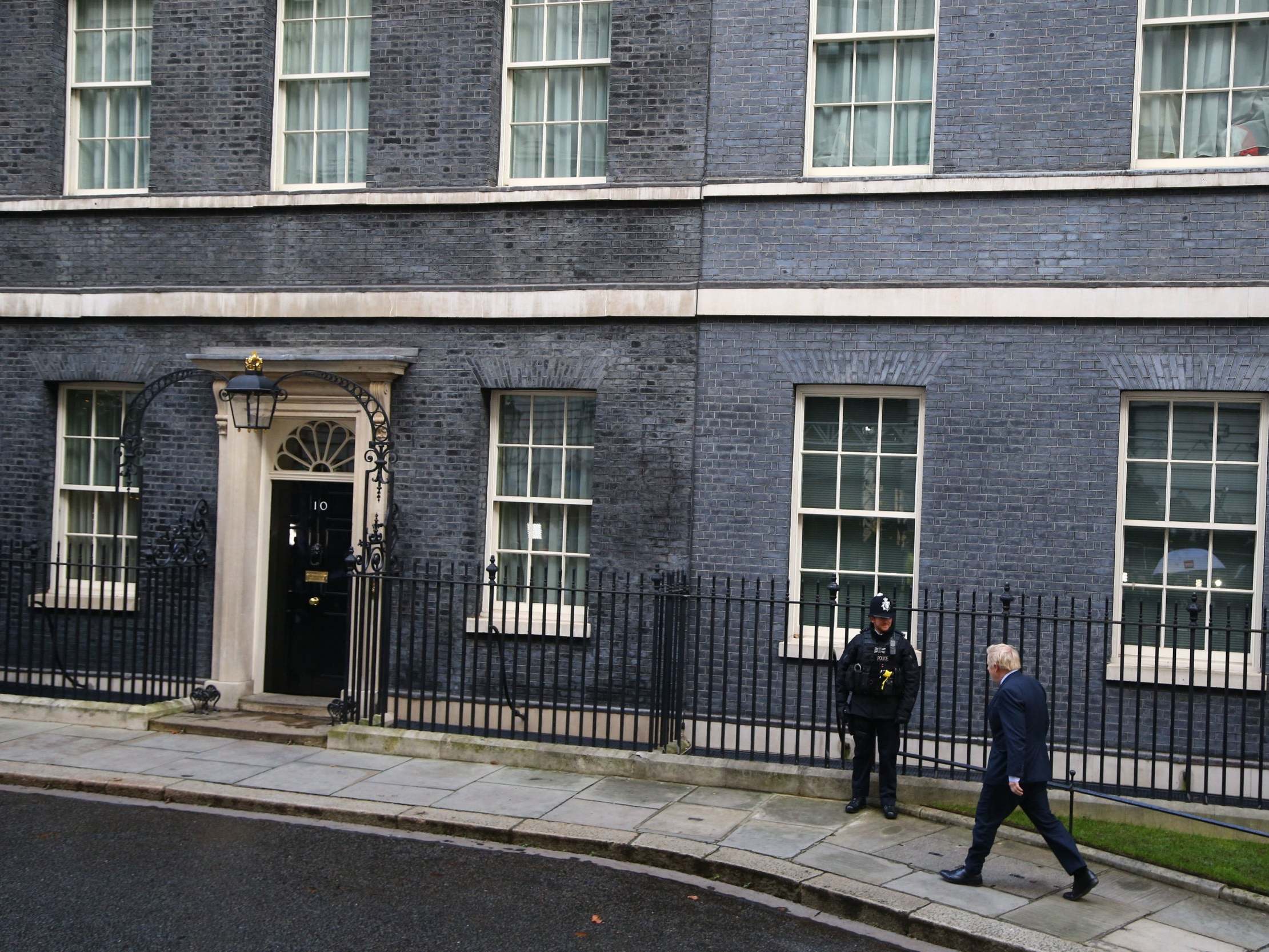What is behind the strained relations between Boris Johnson’s government and the media?
Downing Street has been accused of adopting Trump tactics to bypass press and speak direct to voters, writes Andrew Woodcock


Downing Street is facing calls for an inquiry after political journalists walked out of a briefing on Boris Johnson’s Brexit plans in protest at an attempt to exclude colleagues from rival titles.
Labour have accused No 10 of adopting Trump-like tactics in a bid to stifle critical coverage.
But Downing Street insists there is nothing unusual about choosing to brief particular journalists on particular occasions.
The row comes at a moment of escalating tension between No 10 and the group of parliamentary correspondents known as the lobby, as a result of changes to practices in the wake of the general election.
Outside the Westminster bubble, the spat may appear arcane and self-indulgent. But among political editors there are fears that apparently innocuous changes might give government more power to shape the diet of information presented to the public and ultimately to limit the scrutiny to which ministers are subjected.
For instance, the twice-daily lobby briefing, at which the PM’s official spokesman makes announcements and answers questions from the press, has been moved from a little turret room on the roof of the Palace of Westminster to 9 Downing Street.
So far, this has been little more than an inconvenience to the correspondents who have to make the 10-minute dash across Whitehall and back twice a day. But staging the meeting in a government building behind gates manned by armed police raises the possibility of access being denied to journalists who fall out of favour.
These fears are stoked when No 10 – as has happened twice in the past fortnight – stages briefings only for selected publications and broadcasters, requiring non-partisan civil servants to address reporters chosen by political advisers on an unexplained basis.
Downing Street made clear it would not step in to prevent breaches of the embargo on lobby briefings, after bloggers began live-tweeting proceedings. The PM’s spokesman said the embargo – which requires those attending to wait until the end of the meeting before filing reports – was a matter for the press to decide among themselves and not something for government to enforce.
Those breaking the embargo claim it as a victory for transparency, allowing the public to hear announcements immediately rather than having to wait for journalists to file.
But most lobby correspondents say that the main effect is to force them to devote time during briefings to typing or tweeting rather than asking questions, with the result of easing the pressure on the PM’s spokesman and reducing the supply of information to readers and viewers.
All of this is taking place in the context of an administration which appears to be trying to bypass the traditional media to speak to the public direct.
Mr Johnson has not adopted Donald Trump’s habit of using Twitter as an unfiltered stream of consciousness transmitting his every passing thought into the public domain.
But he is using Facebook chats and viral videos to try to control the way he is seen by voters.
Where Tony Blair and Gordon Brown held regular monthly press conferences, taking questions on any subject from the toughest press interrogators for an hour or more, Mr Johnson has a “people’s PMQs” on Facebook in which spends 20 minutes answering in a folksy manner the softest of queries from the public, selected by his staff.
While the prime minister has undertaken a solitary TV interview since his election in December, he has twice taken questions from children in sessions which were filmed and packaged for use on social media.
Increasingly, the press are provided with pictures of the PM by his private, taxpayer-funded photographer rather than being allowed to send a snapper of their own. And when Mr Johnson wanted to address the nation on Brexit night, Downing Street insisted on filming its own footage rather than following the usual practice of inviting in a “pool” camera from one of the broadcasters to capture the moment.
None of these developments in themselves may appear sinister. But they all point to an administration apparently unconvinced of the value to society of a sceptical media playing its traditional role of holding our leaders to account.
Join our commenting forum
Join thought-provoking conversations, follow other Independent readers and see their replies
Comments